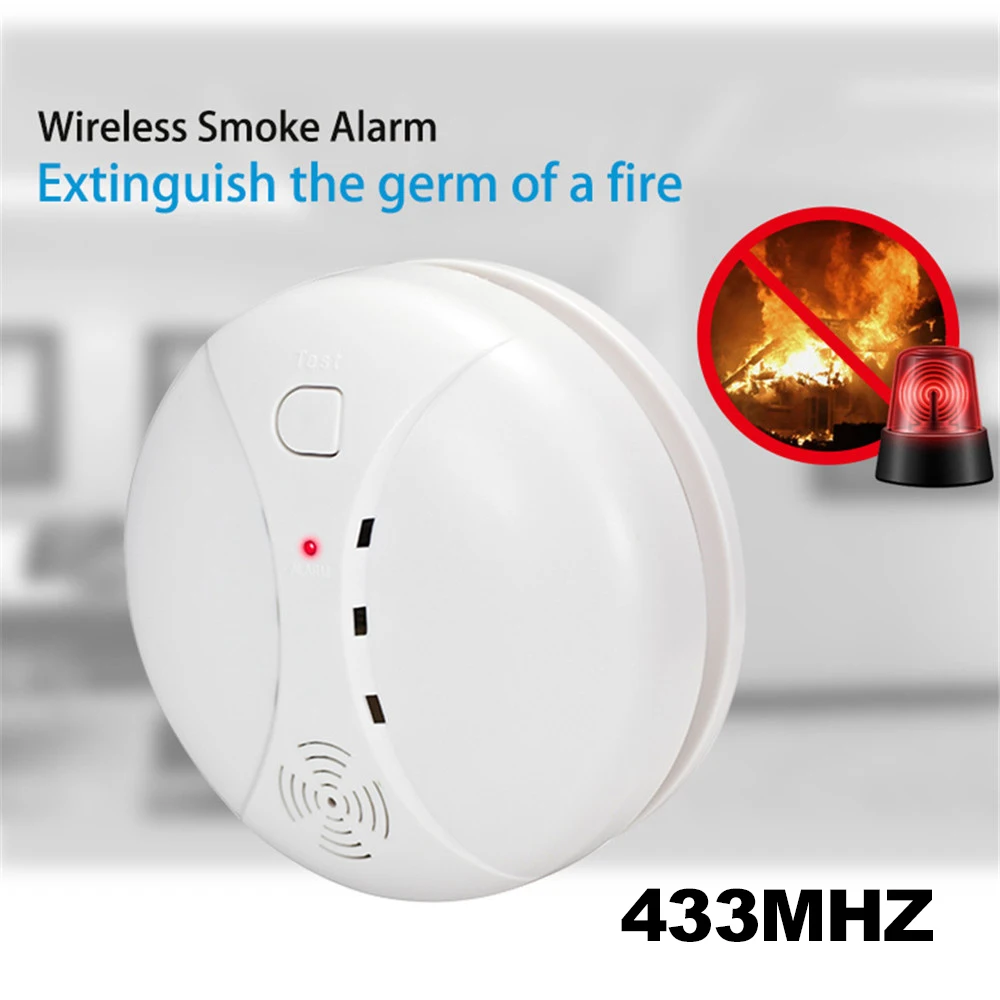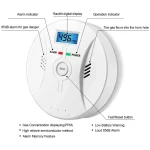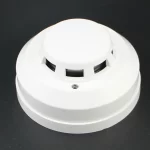Introduction to Smoke Alarm Issues
Beeping smoke alarms can cause frustration and confusion. Though they are often seen merely as loud nuisances, it’s important to remember that the function of a smoke alarm is to alert residents to potential dangers such as fires. However, when a smoke alarm won’t stop going off, it usually indicates one of several common issues that need attention. Understanding the root causes of persistent beeping is critical to effectively addressing the problem and ensuring that your smoke alarm system is fully operational and can provide the necessary protection for you and your family. It’s not just a matter of eliminating the annoying chirps; it’s about maintaining a safe home environment.
In the next sections, we’ll explore some typical reasons for why a smoke alarm might continue to beep, reminiscent of low battery signals or potential malfunctions, and what specific beeping patterns could signify. We’ll also provide a straightforward guide with steps to rectify these issues, aiming to restore peace and ensuring your smoke alarms are in top working order. Finally, we’ll consider the lifespan of smoke detectors and when they should be replaced, along with a comparison of battery-operated versus hard-wired systems to help you make the best choice for your home safety.
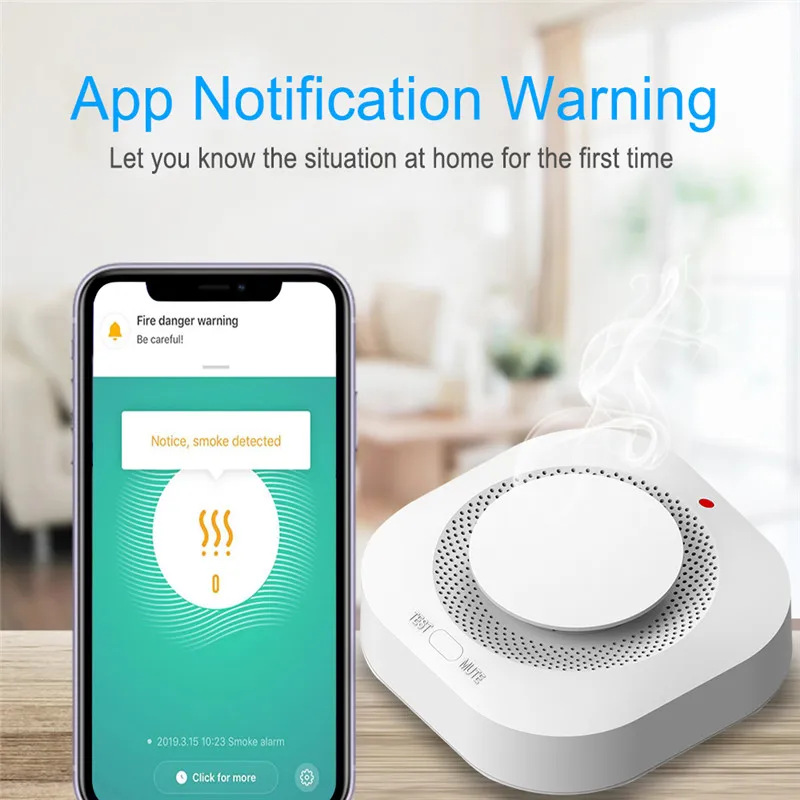
Common Causes of Smoke Alarm Beeping
When your smoke alarm won’t stop going off, it’s not only disruptive; it’s a signal to act. Here are common reasons for the persistent beeping:
Battery-Related Issues
A frequent culprit for smoke alarm beeping is battery issues. Often, the battery might be loose, improperly installed, or even depleted. Check the battery’s placement and make sure it’s securely connected.
Dirty Sensing Chambers
Dust and debris can clog the sensor chamber. This can trigger false alarms or cause intermittent chirps. Regular cleaning can help in preventing these false alarms.
Environmental Factors and Sensitivity
Factors such as humidity or high temperatures may affect alarm sensitivity. Ensure smoke alarms are not placed too close to bathrooms or kitchens where these conditions are common.
Smoke Alarm Age and Expiration
As smoke alarms age, their efficiency can decline. It’s recommended to replace smoke detectors every 8 to 10 years. Check the manufacture date to see if it’s time for a new one.
Understanding Smoke Detector Beeping Patterns
Understanding the specific beeping patterns of your smoke alarm can save you both time and worry. Below, we outline some typical beeping patterns and their meanings.
Continuous Beeps Indication
If you hear continuous beeping, this means smoke may be present. Most smoke alarms emit a persistent beeping to signal an immediate issue, such as smoke detection. It’s crucial to check the area for smoke or fire if you encounter this pattern and take safety measures accordingly.
Intermittent Beeping: Low Battery Alerts
Intermittent beeping, often at regular intervals like every 30 seconds or minute, usually suggests a low battery. This serves as a reminder to replace the batteries. However, if your smoke alarm won’t stop going off even after a battery change, check for other issues like a dirty sensor chamber.
Multiple Beeps: Potential Danger or Malfunction
Hearing multiple beeps could imply a more serious danger, like carbon monoxide presence, which requires immediate action. However, it could also indicate that your smoke detector is malfunctioning or nearing the end of its life. If beeping persists after troubleshooting, consider replacing the unit to maintain safety.
Smoke alarms are designed to be sensitive to a variety of issues. Identifying the beep pattern can help determine if the issue is a mild inconvenience or a potential emergency. Always make sure your smoke alarm’s beeping patterns are not ignored and address them as soon as possible for your safety.
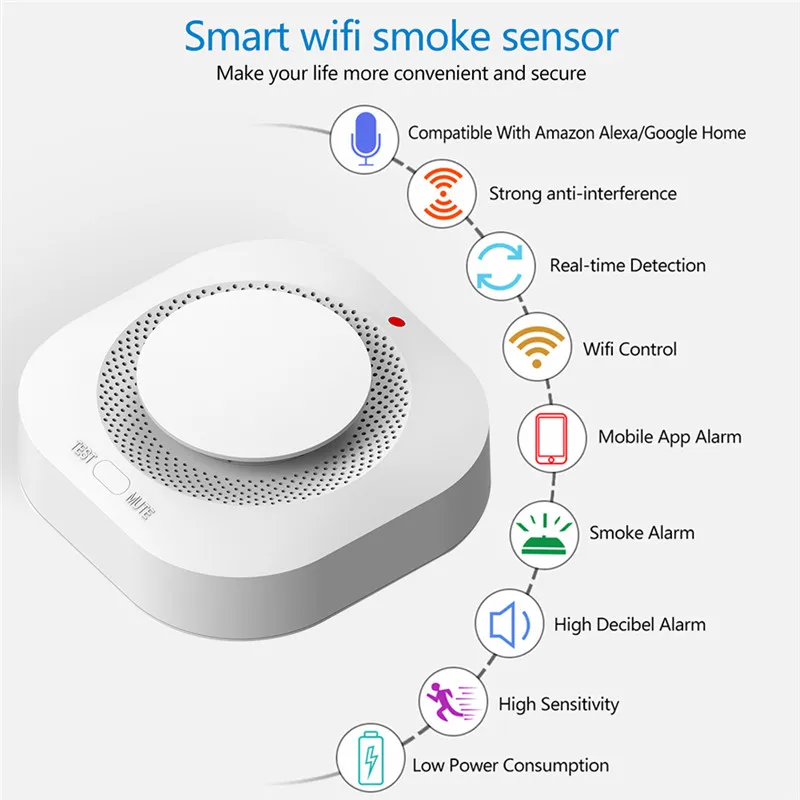
Step-by-Step Guide to Stop Smoke Alarms from Beeping
Dealing with a smoke alarm that won’t stop going off can be annoying and worrisome. Follow these practical steps to silence persistent beeping and ensure your detector is working properly.
Replacing the Smoke Alarm Batteries
Start by checking the batteries. Replace them if they are dead or not seated correctly. Always use batteries of the recommended voltage and test them before installation.
Ensuring Proper Battery Drawer Closure
Make sure the battery drawer is fully closed. Incomplete closure can prevent the battery from connecting properly and cause beeping.
Removing Obstructions from Battery Contacts
Inspect for any blockage between the battery and the contacts. Sometimes, a pull-tab left from the installation can cause poor contact. Remove any obstruction to restore full contact.
Cleaning the Smoke Alarm Sensing Chamber
Dust and insects can accumulate in the sensing chamber. Clean it gently with a soft brush or a burst of compressed air to remove any debris.
Managing Heat and Humidity Near Detectors
Place smoke detectors away from heat or steam sources. Sudden temperature changes or high humidity can trigger false alarms. Adjust their location if necessary.
Considering Replacement of Old Smoke Detectors
Old smoke alarms can start malfunctioning. If your smoke detector is over 8 to 10 years old, it might be time to get a new one. Check the manufacture date for accuracy.
The Lifespan of Smoke Detectors and Replacement Tips
Smoke detectors are key for keeping your home safe, but they don’t last forever. Most smoke alarms have a lifespan of up to 10 years. To find out how old your detector is, check the date on its label. If it’s nearing the decade mark, it’s time to get a new one. You might think your alarm is fine if it’s not beeping, but testing it monthly is important. If it doesn’t beep during a test, swap the batteries to check if that solves the issue. Still no beep? Replace the unit right away. Dust and wear and tear can affect its performance even if it’s not a decade old yet. Remember, safety first; don’t wait too long to replace an old or malfunctioning smoke detector.
Battery vs. Hard-Wired Smoke Alarms: Pros and Cons
Choosing between battery-operated and hard-wired smoke alarms depends on various factors. Each type has its advantages and drawbacks.
Benefits and Limitations of Battery-Operated Detectors
Battery-operated smoke detectors are widely used due to their simplicity and convenience. They are easy to install and work even during power outages, enhancing safety. You can place them anywhere, without the need for electrical wiring. However, battery-operated alarms require regular battery changes. They might not alert you if a battery dies unnoticed.
Advantages and Inconveniences of Hard-Wired Systems
Hard-wired smoke alarms are connected directly to your home’s electrical system. They often include a battery backup for power outages. As they are interconnected, when one alarm goes off, all do, increasing the chance of hearing the alarm. Installation must be done by a professional, and there is a higher upfront cost. But they need less maintenance since there’s no need for frequent battery changes. Hard-wired systems can be more reliable overall.
Both types of alarms are effective when maintained properly. Your choice may depend on budget, convenience, and specific home needs. Remember to test and maintain your alarms regularly to ensure they function when most needed.

Conclusion and Importance of Regular Smoke Alarm Maintenance
In wrapping up, regular attention to your smoke alarms is vital. Their purpose is not only to alert you to fires but also to increase overall safety in your home. Do not overlook the importance of maintenance. Be sure to perform monthly tests on your alarms. Replace batteries as need be, or at least every six months. Keep an eye on expiration dates. Smoke alarms usually last 10 years. After that, you should replace them for optimal performance.
Maintenance means checking for dirt and insects in the sensor chamber and ensuring the units are free from these. Remember, dust can impair a detector’s ability to function. Address any persistent beeping quickly. It could save lives by pointing out issues like low batteries or malfunctions.
Decide between battery-operated or hard-wired systems based on your situation. Each has its advantages. Battery-operated models are simple and work without power. Hard-wired alarms are interconnected and more reliable.
Your smoke alarm won’t stop going off without reason. It’s a signal to take action. Handle it promptly and correctly, and you’ll maintain a safe household. Neglecting your alarms risks missing crucial warnings. Take your alarms seriously. They are a key part of home safety.
